BY WALTER OPINDE
On this day, 29th June, 1941, a prominent figure in the Civil Rights Movement and the global Pan-African movement, Stokely Carmichael, was born in Port-of-Spain, Trinidad. He moved to New York when he was 11 years of age, and joined his parents, who had settled there 9 years earlier. Carmichael attended the elite Bronx High School of Science, where he met veteran black radicals and Communist activists. In 1960, as a senior in high school, Carmichael learned about the sit-in movement for desegregation in the South and joined activists from the Congress of Racial Equality (CORE) protesting in New York against Woolworth stores. This was a chain that maintained segregated lunch counters in the South. Kwame Ture, born Stokely Carmichael, would eventually become active in the Black Power movement, first as a leader of the Student Nonviolent Coordinating Committee (SNCC), later as the “Honorary Prime Minister” of the Black Panther Party (BPP), and finally as a leader of the All-African People’s Revolutionary Party (A-APRP).
Kwame Ture, born Stokely Carmichael, would eventually become active in the Black Power movement, first as a leader of the Student Nonviolent Coordinating Committee (SNCC), later as the “Honorary Prime Minister” of the Black Panther Party (BPP), and finally as a leader of the All-African People’s Revolutionary Party (A-APRP).As chairman of the Student Nonviolent Coordinating Committee (SNCC), Stokely Carmichael challenged the philosophy of nonviolence and interracial alliances that had come to define the modern civil rights movement, calling, instead, for the ‘‘Black Power.’’ Although critical of the ‘‘Black Power’’ slogan, King acknowledged that, ‘‘if Stokely Carmichael now says that nonviolence is irrelevant, it is because he, as a dedicated veteran of many battles, has seen with his own eyes the most brutal white violence against Negroes and white civil rights workers, and he has seen it go unpunished.’’
As chairman of the Student Nonviolent Coordinating Committee (SNCC), Stokely Carmichael challenged the philosophy of nonviolence and interracial alliances that had come to define the modern civil rights movement, calling, instead, for the ‘‘Black Power.’’ Although critical of the ‘‘Black Power’’ slogan, King acknowledged that, ‘‘if Stokely Carmichael now says that nonviolence is irrelevant, it is because he, as a dedicated veteran of many battles, has seen with his own eyes the most brutal white violence against Negroes and white civil rights workers, and he has seen it go unpunished.’’Carmichael enrolled as a philosophy major at Howard University in 1960 and joined the university’s Nonviolent Action Group, which was affiliated with SNCC. In addition to working against segregation in Washington, D.C., Carmichael
Carmichael enrolled as a philosophy major at Howard University in 1960 and joined the university’s Nonviolent Action Group, which was affiliated with SNCC. In addition to working against segregation in Washington, D.C., Carmichael traveled south on the Freedom Rides. When the freedom riders traveled to Mississippi, Carmichael was arrested for the first time. King’s Southern Christian Leadership Conference (SCLC) awarded Carmichael a scholarship designed to support arrested students, and he continued his studies at Howard. Throughout his four years in college, Carmichael participated in civil rights activities ranging from the Albany Movement to New York hospital strikes. Upon his graduation in 1964, Carmichael joined SNCC’s staff full time, working on the Mississippi Freedom Summer project and the Mississippi Freedom Democratic Party. Carmichael found himself frustrated by what he saw as unsuccessful agitation for political rights and grew skeptical of the prospects for interracial activism within the existing political structure.
After the Selma to Montgomery March in March 1965, Carmichael stayed in Alabama to help rural African-Americans outside Selma form the Lowndes County Freedom Organization, an all-black, independent political group that became known as the Black Panther Party. He recalled how people in Lowndes County responded to King’s leadership: ‘‘People loved King … I’ve seen people in the South climb over each other just to say, ‘I touched him! I touched him!’ … The people didn’t know what SNCC was.’’ When asked, ‘‘Are you one of Dr. King’s men?’’ he replied, ‘‘Yes, Ma’am, I am.’’
Although Carmichael opposed the decision to expel whites from SNCC, in the later 1960s he joined with black nationalists in stressing racial unity over class unity as a basis for future black struggles. After relinquishing the SNCC chairmanship in 1967, Carmichael made a controversial trip to Cuba, China, North Vietnam, and finally to Guinea. Returning to the United States with the intention of forming a black united front throughout the nation, he accepted an invitation to become prime minister of the militant Oakland-based Black Panther Party. In 1969 he left the Black Panthers after disagreeing with the party’s willingness to work with radical whites.
Carmichael changed his name to Kwame Ture and moved to Guinea, where he conferred with exiled Ghanaian leader Kwame Nkrumah. He helped form the All-African People’s Revolutionary Party in 1972 and urged African-American radicals to work for African liberation and Pan-Africanism. Carmichael died of cancer in Guinea on 15th November, 1998 at the age of 57 years.
Read more about Carmichael via:





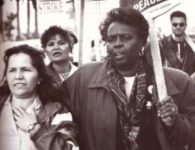
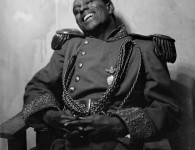
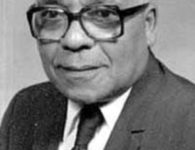
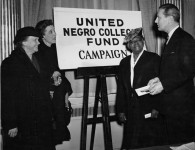

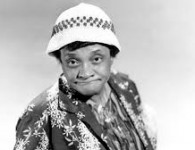
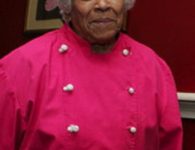
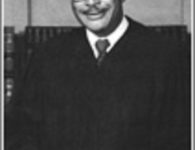
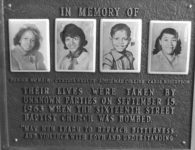
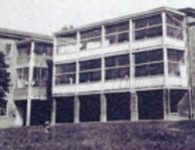

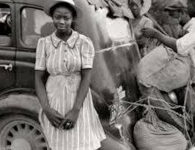
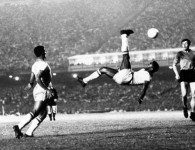
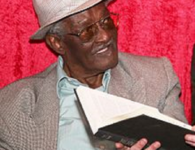
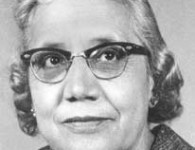

No comments